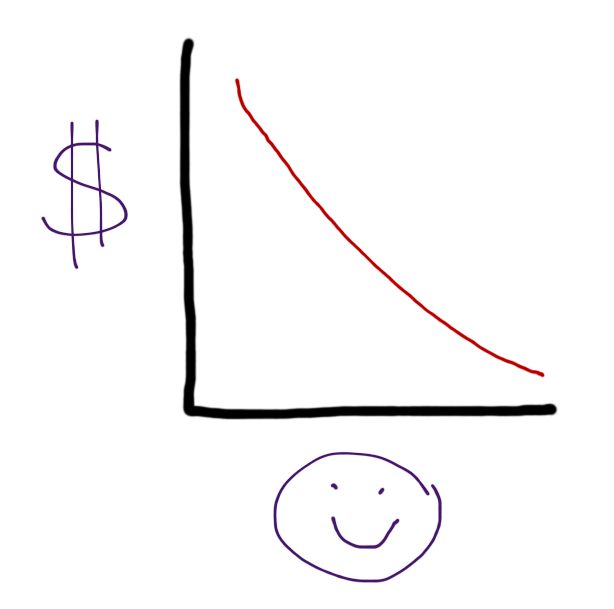Confession: Price vs Enjoyment
 Monday, January 2, 2012 at 12:18AM
Monday, January 2, 2012 at 12:18AM  CAtennis
CAtennis As a tennis coach, I find more enjoyment when I am not getting paid for my time. Assuming there are a few givens:
- Hungry and willing student
- My basic needs are met (car, shelter, food) in relation to my peers around me
There are 3 types of coaches who fit under this profile (because they are basically making dirt, no $$):
- Assistant College Coaches and some Head Coaches
- Wannabe Touring Coaches
- People who work in the real world, then coach out of the goodness of their heart in-between work
Assistant College Coaches get paid money for their time on the court, but consider it dirt. They are making zilch and the intrinsic satisfaction of spending time with willing students in a team environment is very fulfilling. Wannabe Touring Coaches are in the same boat, they have no guaranteed income unless their pupil has deep pockets. Wannabe Touring Coaches have a small stipend plus 10-20 percent of players earnings. (A player makes $1,500 for winning a Men's Futures Event out of a 32 main and 64 qualifying draw). Typically, Wannabe Touring Coaches are living the dream of traveling, in hope that one day, they can rub shoulders with the big dogs if their star player has success. Lastly, doctors, lawyers, accountants, teachers, etc- these twisted souls want to give back and be on the tennis court, helping whoever is willing to listen. These "real worlders" expect nothing in return for their time, always feeling the itch to get out on the court inbetween work and marriage duties.
Here is what the graph looks like with Price of Lesson on the Y-axis and Enjoyment on the X-axis. These poor souls are pure lovers of the game, givers in life, true teachers. Money doesn't drive them. The moment you put a dollar in their hand, pressure has increased and they start to feel the stress creep in- ultimately leading to an unfulfilling time on the court. The pressure to please the parents and student requires you to manufacture "bull$hit" to ease their fears of getting a good bang for their buck.

Now if you notice, this can't be normal. The graph above depicts these twisted souls, but usually, these are the best types of coaches for your students. They go all in, they do it for the right reasons, and they aren't polluted by money. Focus on the learning and have a great time.
Moving on, we all know what the graph looks like for the typical country club teaching professional in a ritzy neighborhood. Well naturally the Enjoyment increases as the profit to gain increases. These twisted souls are driven by greed is good. There is no question these types know their tennis, but it is all driven by the all-mighty dollar. $80 per one hour private or piling 20 kids on a court to rake in $20,000 a month. It always seizes to amaze me how big the tennis industry is and how it continues to grow.

Gordon Gecko would surely be proud.
Now the third graph is where a normal human being (if such a thing exists) should reside. Who doesn't like to make big money for time on the court?

I fall into the third graph- I certainly have a little of Gordon Gecko in me as well as Dali Lama. Where do you fall? Humor me.


